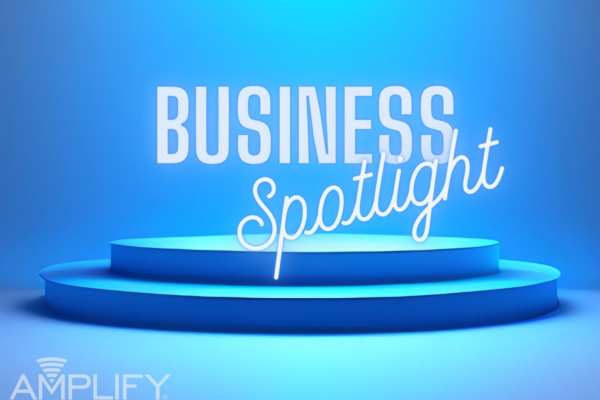
Top 8 Questions on Small Business Loans

As a small business owner, coming up with money to cover start-up costs, buy new equipment, or make expansions can be difficult. Thanks to small business loans, you don’t necessarily have to have the money in your pocket to make these things happen.
Think you and your business could benefit from commercial financing? Read these top eight questions that people ask about small business loans.
1. Do I need a small business loan?
Before you start asking questions about the loan itself, you may be asking whether or not you need a small business loan at all. A small business loan may be a good option if you:
- Have a well-thought-out business plan, but need the funds to get it started
- Need working capital to take your business to the next level
- Need to purchase inventory or necessary equipment
- Want to take advantage of an opportunity for growth or expansion
- Want to build credit or consolidate more expensive debt your business may have
While a small business loan will put money into your business, it’s important to remember that it is still debt that needs to be repaid. Taking out and repaying a loan should never cause financial hardship for your business. If you anticipate your monthly loan payments cutting into your cash flow in a significant way, a small business loan may not be for you right now.
2. What small business loan options do I have?
There are numerous commercial loan options that small businesses can take advantage of. Some of the most popular options include:
- SBA loans
- Commercial real estate loans
- Business lines of credit
- Equipment financing
- Term loans
The one that you choose will depend on your specific needs and what you qualify for.
3. What is the Small Business Administration?
The Small Business Administration (SBA) is a federal agency dedicated to helping entrepreneurs and small business owners start, grow, expand, and recover their businesses. Created in 1953, the SBA advocates for small businesses, provides education and training for owners, and connects business owners with government contracts. They also have three business financing programs:
- 7(a) loans: These provide small businesses with funds for real estate purchases, short- and long-term working capital, debt refinancing, equipment purchases, and more.
- 504 loans: These provide fixed-rate financing for major fixed assets that promote business growth and job creation.
- Microloans: A microloan can provide up to $50,000 for business start-up or expansion costs.
SBA-guaranteed loans, which are offered through participating financial institutions, are a popular option for many business owners thanks to their competitive terms, counseling and education opportunities, and unique benefits.
4. What do I need to qualify for a small business loan?
Before a lender will lend money to you or your business, they’ll want to be sure that you’re able and likely to pay it back. To qualify for a small business loan, you’ll need to provide the appropriate documentation and meet the lender’s requirements. Typically, lenders will want to see:
- A solid business plan: Lenders want to know that you have an idea of how to effectively run your business. You will need to provide monthly and yearly operating expenses, revenue projections, industry analysis, and more.
- Cash flow: Lenders want to see a history of a steady cash flow, which indicates that you’ll be able to make your monthly payments.
- Collateral: Depending on the lender and loan, you may be required to put up property to secure your loan. Things such as your business’s office or retail space, inventory, or equipment can serve as collateral. If your business doesn’t own property to put up, you may have to secure the loan using personal property.
Your lender will also look at your personal credit score. Many lenders require that small business owners have a credit score of 680 or higher for loan approval.
5. How do I get a small business loan?
To get a small business loan, you’ll want to start by gathering relevant documents like your government-issued ID, tax returns, business financial reports, and business plans.
Once you have those documents out and ready, start shopping around for the best option. Talk to local commercial lenders to learn who has the best rates and the best customer experience for small businesses.
After you’ve chosen a lender, you’ll work with them to get approved for the loan product that you want. The approval process can take anywhere between 30 to 90 days, depending on the lender and loan.
6. What can a small business loan be used for?
What you can use your small business loan for depends on what loan you have. For instance, a commercial real estate loan can only be used to purchase real estate property. With other loans, such as an SBA 7(a) loan, business owners have more discretion on how the funds are used.
As we mentioned earlier, businesses around the country take advantage of financing to cover everything from large equipment purchases to buying new property for the business.
7. How much can I borrow with a small business loan?
How much a lender will extend to you will depend on what type of loan you are taking out, your current financial state, collateral, and your business’s needs.
For instance, SBA 7(a) and 504 loans have maximum limits of $5 million while their microloans have a limit of $50,000. Banks and credit unions may have their own commercial loan offerings each with unique limits and restrictions. Short-term loans may offer as much as $250,000 while traditional term loans may give you more than $1 million.
8. Can start-ups use a small business loan?
Without two years of financial history to take into consideration, a start-up may not be eligible for certain loan products.
However, with extra documentation of industry experience and an in-depth business plan, many lenders will happily lend the money you need to get your business off the ground. You should also be on the lookout for special loan offerings geared towards young businesses, such as the SBA microloan.
Help Your Small Business Grow
Navigating personal finance can be confusing enough, but business finances can be a whole other world. Hopefully, the answers to these eight questions cleared up any confusion around business loans that you may have had. Having an overview of the offerings available to you can help you pick the small business loan that is right for you and your business needs. For small businesses, a commercial loan can be a great financial tool that provides the funds your business needs to start up, recover from hardship, or expand to new heights.
Looking for a Commercial Loan?
Amplify’s commercial lending team can help you find the right solution for your business.

